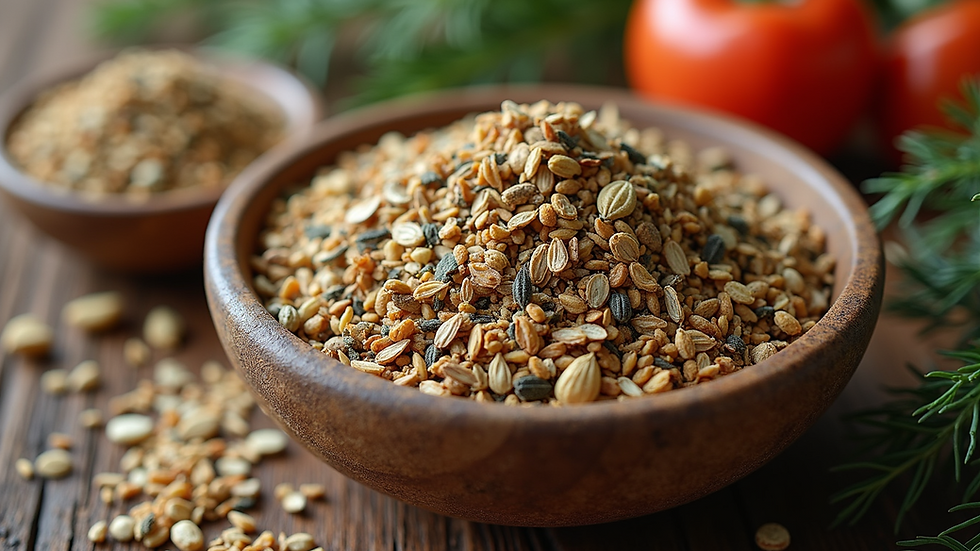Unlock the Antioxidant Benefits of Tea
- Cheryl Whitehead
- Oct 14, 2025
- 3 min read
Tea has been cherished for centuries, not only for its soothing flavors but also for its remarkable health benefits. Among these, the antioxidant properties of tea stand out as a powerful contributor to overall wellness. This article explores how tea can be a natural ally in promoting health, the science behind its antioxidants, and practical ways to incorporate tea into your daily routine.
Discovering the Health Benefits of Tea
Tea is more than just a comforting beverage. It contains a variety of compounds that can positively impact your health. The most notable among these are antioxidants, which help protect your body from damage caused by harmful molecules called free radicals.
Free radicals are unstable atoms that can cause oxidative stress, leading to cell damage and contributing to aging and various diseases. Antioxidants neutralize these free radicals, reducing their harmful effects.
Tea, especially green, black, and white varieties, is rich in antioxidants such as catechins, theaflavins, and flavonoids. These compounds have been linked to numerous health benefits, including:
Improved heart health: Regular tea consumption may help lower blood pressure and reduce the risk of heart disease.
Enhanced brain function: Certain antioxidants in tea can support cognitive function and may reduce the risk of neurodegenerative diseases.
Weight management: Some studies suggest that tea can boost metabolism and aid in fat burning.
Cancer prevention: Antioxidants in tea may help protect cells from DNA damage, potentially lowering cancer risk.
Incorporating tea into your daily routine is a simple and enjoyable way to harness these benefits.

How to Maximize the Health Benefits of Tea
To get the most out of your tea, consider the following tips:
Choose high-quality tea: Opt for loose-leaf or whole-leaf teas rather than tea bags, which often contain lower-quality leaves.
Brew properly: Use the right water temperature and steeping time for each type of tea to preserve antioxidants. For example, green tea is best brewed at 160-180°F for 2-3 minutes.
Avoid adding sugar: Sweeteners can negate some health benefits. If you prefer a sweeter taste, try natural options like honey or stevia in moderation.
Drink regularly: Consistency is key. Aim for 2-3 cups daily to enjoy sustained antioxidant effects.
Experiment with varieties: Different teas offer unique antioxidant profiles. Rotate between green, black, white, and oolong teas to diversify your intake.
By following these guidelines, you can enjoy both the flavor and the health benefits of tea.

Which Drink Is Highest in Antioxidants?
When comparing beverages, tea ranks among the highest in antioxidant content. Green tea, in particular, is renowned for its high levels of catechins, especially epigallocatechin gallate (EGCG), a potent antioxidant.
Other drinks with notable antioxidant levels include:
Coffee: Contains chlorogenic acid, which has antioxidant properties.
Red wine: Rich in resveratrol, but should be consumed in moderation.
Fruit juices: Especially those made from berries, which are high in vitamin C and flavonoids.
However, tea offers a unique combination of antioxidants that work synergistically to provide health benefits without the added sugars or alcohol found in some other drinks.
For those interested in exploring more about tea and antioxidants, there are many resources and products available that highlight the natural power of tea.

Practical Ways to Incorporate Tea into Your Lifestyle
Adding tea to your daily routine can be both simple and enjoyable. Here are some practical ideas:
Morning boost: Replace your morning coffee with a cup of green or black tea for a gentler caffeine lift and antioxidant boost.
Afternoon ritual: Use tea as a mindful break during your workday to relax and recharge.
Post-meal aid: Drink a cup of white or oolong tea after meals to support digestion.
Hydration alternative: Swap sugary drinks for iced tea infused with fresh herbs or citrus for flavor without calories.
Cooking ingredient: Use brewed tea as a base for soups, stews, or marinades to add subtle flavor and antioxidants.
Experiment with different types and flavors to find what suits your taste and lifestyle best.
Embracing Tea for Long-Term Wellness
The health benefits of tea extend beyond its antioxidant content. Regular tea consumption has been associated with improved mental alertness, reduced stress, and even enhanced immune function. By making tea a part of your daily habits, you invest in your long-term wellness.
Remember, the key to unlocking the full potential of tea lies in quality, preparation, and consistency. Whether you prefer a classic cup of green tea or a fragrant herbal blend, the natural antioxidants in tea can support your health in many ways.
Start your journey today by exploring the diverse world of tea and experiencing its many benefits firsthand. Your body and mind will thank you.



Comments